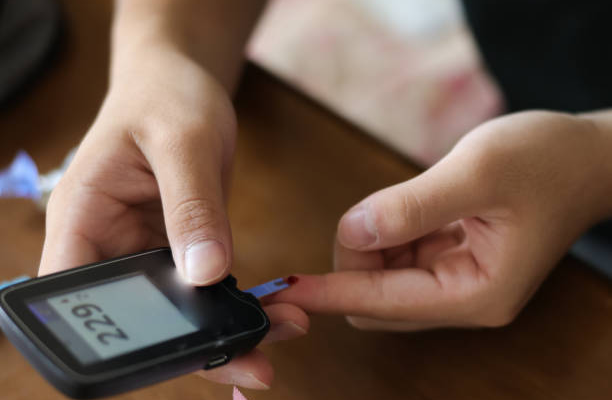
Understanding Diabetes
Diabetes is a health disorder in which blood sugar levels become abnormally high. This occurs when your body either does not produce enough insulin or cannot use it adequately. Insulin is a hormone that allows your body to use sugar (glucose) from the foods you eat for energy. When this process fails, it can cause a variety of health issues.
The Importance of Management
Managing diabetes is important for maintaining good health. If left untreated, it can lead to major problems like heart disease, stroke, renal disease, nerve damage, and even blindness. That is why it is critical to keep your blood sugar levels within normal limits.
Introducing Tradjenta Medication
Tradjenta medication is a DPP-4 inhibitor. It reduces blood sugar levels in persons with type 2 diabetes. Tradjenta works by raising the quantities of hormones in your body that help to reduce blood sugar. It is often taken as a tablet once per day, with or without food.
How Tradjenta Works
Tradjenta works by targeting an enzyme called DPP-4, which degrades hormones in the body that help regulate blood sugar levels. Tradjenta inhibits this enzyme, which helps boost the levels of these hormones, lowering blood sugar levels.
Benefits of Tradjenta Medication
One of the primary advantages of Tradjenta medicine is that it reduces blood sugar levels without producing significant weight gain. This is especially crucial for diabetics who are trying to control their weight. Furthermore, Tradjenta has been demonstrated to have a minimal risk of generating low blood sugar levels (hypoglycemia) when taken alone.
Incorporating Tradjenta into Your Diabetes Management Plan
If you and your healthcare practitioner determine that Tradjenta is correct for you, you must incorporate it into your overall diabetes management strategy. This may include adopting healthy lifestyle habits like as eating a balanced diet, exercising regularly, checking your blood sugar levels, and taking any other medications as prescribed.
Tips for Taking Tradjenta Medication
When taking Tradjenta medication, it’s important to follow your healthcare provider’s instructions carefully. Here are some tips to help you get the most out of your treatment:
- Take Tradjenta exactly as prescribed by your healthcare provider.
- Make sure to take it at the same time each day to help maintain consistent blood sugar levels.
- If you forget to take a dose, take it as soon as you remember. However, if it’s almost time for your next dose, skip the missed dose and take your next dose at the regular time.
- Keep track of your blood sugar levels regularly and report any significant changes to your healthcare provider.
- Be sure to attend all scheduled appointments with your healthcare provider to monitor your progress and make any necessary adjustments to your treatment plan.
Possible Side Effects
Tradjenta, like any other medication, may cause side effects in some people. Common side effects of Tradjenta include stuffy or runny nose, sore throat, cough, and headache. In rare cases, it may cause more serious side effects like pancreatitis (pancreatic inflammation) or allergic reactions. If you notice any unusual symptoms while taking Tradjenta, contact your doctor right away.
Monitoring Your Progress
Once you start using Tradjenta, you should keep track of your progress regularly. This involves monitoring your blood sugar levels and any changes in how you feel. By remaining watchful and proactive, you may check that your diabetes treatment plan is still successful and make necessary adjustments.
Lifestyle Support for Diabetes Management
Making good lifestyle choices, in addition to taking medicine such as Tradjenta, is critical for effective diabetes management. This involves eating a healthy diet high in fruits, vegetables, whole grains, and lean proteins. It is also critical to engage in regular exercise; aim for at least 30 minutes of moderate-intensity activity most days of the week. Maintaining a healthy weight and staying active can help keep blood sugar levels under control and lower your risk of problems.
Setting Realistic Goals
Managing diabetes is a journey, and it is critical to set realistic goals for yourself along the way. Setting small, attainable objectives, whether they are for changing your nutrition, increasing your physical activity, or achieving improved blood sugar management, can help keep you motivated and focused. Celebrate your accomplishments, no matter how minor, and don’t be too harsh on yourself if you face setbacks. Remember that every step toward better diabetes management is a positive step.
Support Network
Living with diabetes might be difficult at times, but you are not alone. Building a solid support network of family, friends, and healthcare providers can significantly improve your diabetes control journey. Don’t be afraid to ask for help when needed, whether it’s emotional support, practical assistance, or instruction on your treatment plan. Surrounding yourself with individuals who care about your well-being might help you feel more confident and empowered to take control of your health.
Educating Yourself
In terms of diabetes management, knowledge is power. Take the time to learn about your disease, including how it affects your body, the significance of drug adherence, and how to avoid problems. Ask your healthcare provider questions, look for credible sources of information, and stay current on the latest breakthroughs in diabetes care. The more information you have, the more equipped you will be to make health-related decisions.
Staying Positive
Living with diabetes can be difficult, but maintaining a positive attitude can make a huge difference. Concentrate on what you can control, such as adhering to your treatment plan, making healthy choices, and remaining connected to your support system. Practice self-care and seek out activities that bring you joy and fulfillment. Remember that you are more than your diabetes diagnosis, and with the correct attitude, you can overcome any challenge that comes your way.
Conclusion
Managing diabetes requires a multidimensional approach that involves medicine, lifestyle adjustments, monitoring, support, education, and optimism. Tradjenta medicine can be an important part of your diabetes treatment toolkit, helping to lower blood sugar levels and reduce the risk of complications. Tradjenta can help you regulate your diabetes and live a full, active life. Remember that you are not alone on this road, and with the correct tools and support, you can thrive even with diabetes.











